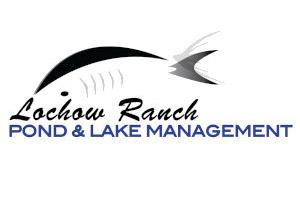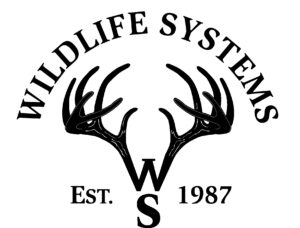PhD in Fisheries, Wildlife, and Conservation Sciences: Developing multi-method approaches for landscape-scale sampling of small mammals
Oregon State University (State) | https://fwcs.oregonstate.edu/
Details
Application Deadline:
08/15/2025
Published:
06/09/2025
Starting Date:
after 1/5/2026
Hours per Week:
at least 40
Salary:
$30,000 to $33,000 per year
Education Required:
Bachelors
Experience Required:
none
Tags:
Graduate Opportunities
Description
Call for applicants for a PhD in Fisheries, Wildlife, and Conservation Sciences
Department of Fisheries, Wildlife and Conservation Sciences,
Oregon State University
Project title: Developing multi-method approaches for landscape-scale sampling of small mammals
Summary: The Twining Applied Quantitative Ecology Lab at Oregon State University is seeking a highly motivated PhD student to conduct applied ecological research focused on developing field and statistical methods for statewide monitoring of small mammal populations.
Position description: Small mammal populations are critical to Oregon’s ecosystems, with essential roles in the regulation of plant communities, as ecosystem engineers, and as a critical prey base to many predators. Despite this, the status of most small mammal species in Oregon is uncertain. In Oregon’s State Wildlife Action Plan, several are identified as Species of Greatest Conservation Need (e.g., Western gray squirrel, red tree vole) while many others are recognized as Species of Greatest Information Need (e.g., Preble’s shrew). The most recent data we have on a state-wide scale to inform the conservation and management of small mammals in Oregon are records reported within “Land Mammals of Oregon” (Verts & Carraway, 1998). The long-term goal of this project is to update estimates of i) distribution, ii) abundance, iii) and habitat associations for a range small mammals statewide. A critical step towards this goal is developing capacity for large-scale sampling of small mammals, which requires a suite of non-invasive survey tools applicable to three key groups: i) arboreal species, e.g., Western grey squirrels, red tree voles, ii) terrestrial species e.g., Preble’s shrew, and iii) fossorial species e.g., pocket gophers. Optimal multi-method protocols will be developed through field and lab tests paired with simulations. Depending on students’ interests, there will be scope to develop research focused on any or all the key species and groups. This PhD will facilitate future statewide sampling of small mammals to inform conservation action for a range of species.
This PhD program will involve extensive field work in western Oregon (planning, establishing, and running field trials using a combination of invasive and non-invasive methods including capturing small mammals) as well as quantitative model development. We will develop and test a suite of non-invasive sampling methods applicable to a range of small mammals and use simulations to produce optimal multi-method sampling protocols for arboreal, terrestrial, and fossorial mammals in Oregon. The student will join a growing and supportive lab group and work closely with project partners including state agency collaborators at Oregon Department of Fish and Wildlife, Oregon Biodiversity Information Center, and NCASI. The student will be expected to integrate as an active collaborator and facilitate project management. They will co-develop and implement a project-related dissertation under the mentorship of their advisor, Dr. Joshua P. Twining.
Start date: January 5th, 2026
Funding: Fully funded, including 12 months of salary (~$30-33k) and covering the costs of tuition, fees, and benefits each year. The student will be supported through a combination of graduate research assistantships and employment as a graduate teaching assistant.
Minimum requirements:
• Applicants must meet the OSU Graduate School minimum requirements for admission (found at: https://gradschool.oregonstate.edu/admissions/academic-requirements).
• BS in Ecology or an associated field by the expected start date. E.g., wildlife, conservation, biology, or allied fields.
• Strong quantitative base (e.g., statistical training, competency in R)
• Aptitude and enthusiasm for fieldwork under variety of conditions
• Strong written and oral communication skills across different types of audiences.
• Resilience and adaptability
• Ability to work both independently and collaboratively as part of a team
Preferred skills and qualifications:
• MS in Ecology or an associated field by the expected start date. E.g., wildlife, conservation, biology, or allied fields
• Demonstration of an ability to take projects from planning and implementation through to completion with written products (e.g., peer reviewed publications).
• Trapping and handling mammals
• Familiarity with genetic methods (e.g., microsatellite analyses, sanger sequencing)
• Hierarchical modelling (e.g., occupancy modelling, spatial-recapture recapture)
• Experience with Bayesian inference and familiarity with relevant software
To apply: Please submit the following via email as a single PDF document:
1. Cover letter, less than 2-pages single-spaced (size 12 font) describing how you meet the minimum and preferred requirements for this role, your research interests and experiences, what you ultimately hope to do achieve within and after the PhD.
2. A current resume or curriculum vitae
3. Transcripts (unofficial copy is okay for review, but official needed if selected)
4. The names and contact information of three academic or professional references
Email your application packet to Dr. Joshua P. Twining, joshua.twining@oregonstate.edu with the email title “PhD Application – small mammals.” Applications will be reviewed on a rolling basis, with priority given to applications received by July 15th. Please reach out with any questions.
Contact
Joshua Twining
joshua.twining@oregonstate.edu (preferred contact method)






